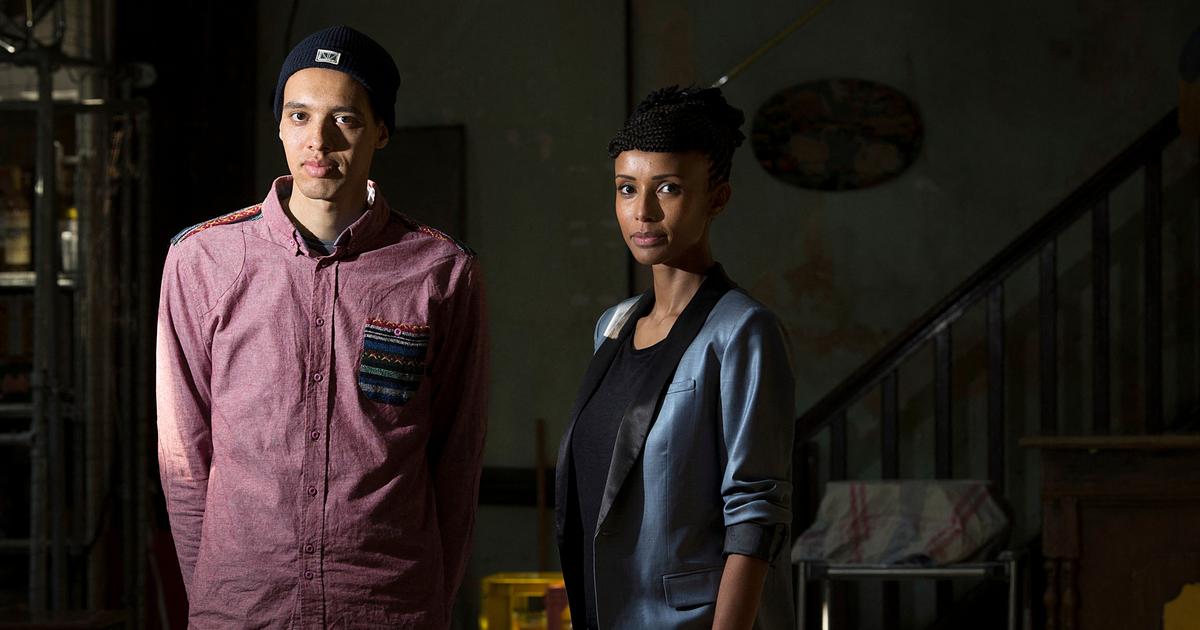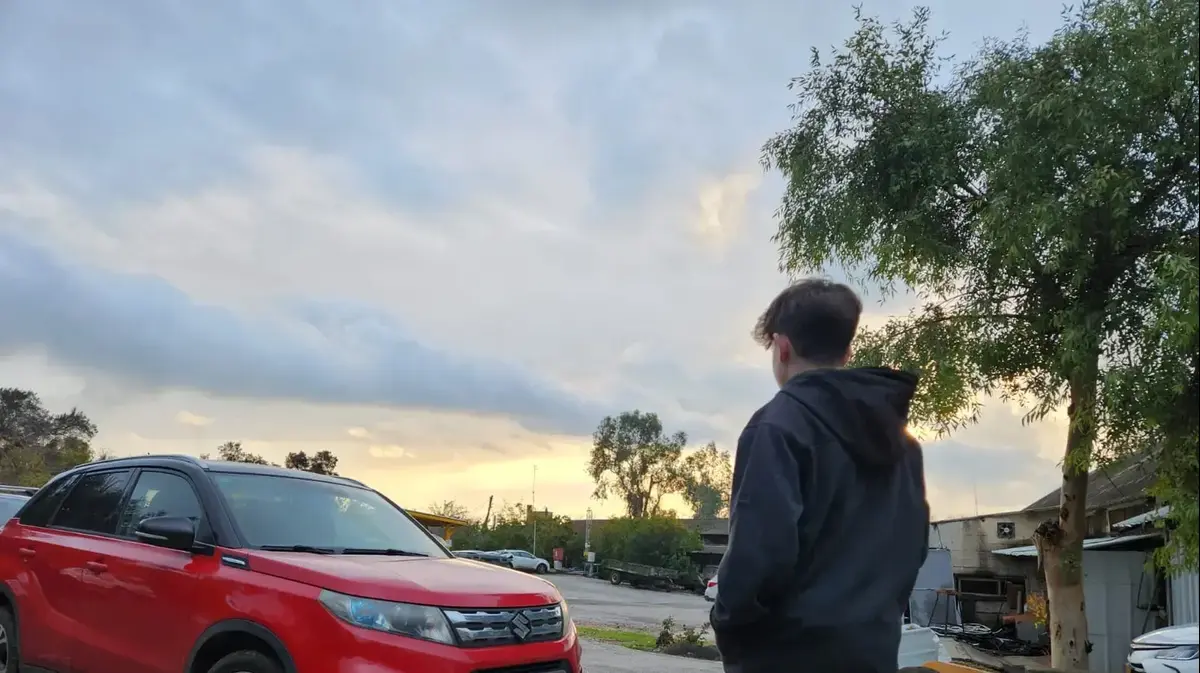Childhood in the shadow of war: eyewitnesses report on memories of the war
Created: 06/04/2022, 16:04
Contemporary witnesses on the stage of the Taufkirchen cultural center: director Kirsten Althof (left) together with three of the protagonists of the documentary, Professor Rudolf Fritsch, Doris Götz, and Jean Böhme (right).
© Mueller
In a film, contemporary witnesses from the district and the surrounding area report on their memories of the Second World War and the time after.
These are their stories.
Taufkirchen/Haar – You were between four and eleven years old when the Second World War began.
The memories still haunt her to this day.
Nine people from the district of Munich and the region report in the documentary “Nine.
Memories of eventful times” about their experiences, fears and feelings.
The film by Kirsten Althof and Michael von Ferrari made a lasting impression on the audience at the Taufkirchen cultural center.
Three eyewitnesses from the documentary were also there to talk to the audience.
It was the first joint event of the green cinema and the adult education center in Taufkirchen after the forced Corona break.
Alone with the pain
In the film, the nine protagonists talk about duties and prohibitions, hunger and fear, but also about curiosities from the end of the war and the post-war period.
Erika Müller from Dachau, born in 1931, remembers how the German soldiers marched laughing through the streets of Munich into the field, cheered by crowds.
Normal back then, unthinkable here today.
When Munich was bombed, residential areas were hit because the wind had blown the marking fog away from the BMW plants.
Her parents' house was also destroyed.
When her father came into the air-raid shelter and reported it, she asked: "My piano too?" and answered her father's "yes" with a smile of happiness: "Thank God".
On the other hand, she was concerned about the fact that she lost her friend because she fled to Palestine with her parents, and that the Jewish mother of another friend hanged herself to protect her family.
At the time, Müller was alone with her confusion and pain.
He never saw his mother again
Just like the veterinarian Professor Rudolf Fritsch, who lives in Neubiberg.
He was eleven years old when the war began.
As a child, he learned to remain silent about what was said at home.
His father was disabled from the First World War and had to work in a weapons factory.
Althof and von Ferrari have supplemented the emotionally stirring stories of contemporary witnesses with aerial photographs of destroyed cities, fighter-bombers, anti-aircraft positions, bomb craters and trenches.
Many photos show children, for example with school cones or as Hitler Youth with weapons in "pre-military training", as it was called at the time.
Rudolf Fritsch soon freed a musical activity from having to take part.
Anyone who resisted taking part “was going to pay dearly for it”, as one HJ group leader threatened when Rudolf Reichelt’s mother pushed him down the stairs with a broom because he wanted to pick up her son for the practice session.
Both suffered: the boy was taken away by the Nazis a week later, as was his mother.
They never saw each other again.
Living in the former concentration camp
Jean Böhme from Haar, who was not born until 1947 but spent part of his childhood in Dachau, provided a different perspective: "So much was broken that even the former concentration camp was used as living space.
We children felt comfortable there,” he says.
However, he hated the kindergarten, locked it one day and threw the key far away.
"They never found him again," is how you can still feel his joy at the deed today.
also read
Computer paralyzed - Erdwärme Grünwald attacked by hackers
Iron rod murder in Psychiatry Haar: kbo-Klinik saw “no evidence of current danger”
Prof. Rudolf Fritsch, born in 1928, experienced the Second World War in Munich.
Today he lives in Neubiberg.
© Mueller
It's the short sentences that make the film and stick in your mind.
"We lay in bed half dressed," says Munich native Doris Götz, recalling the many air raid alarms.
The siren sounded several times at night.
The film shows how it sounded.
The howl sent shivers down the spines of many in the audience.
With Alie Dessecker from Hohenschäftlarn "the basket with the clothes was always next to the bed".
The ever-present fear would have “shadowed” being a child.
"Football was the only thing we had," remembers Fritz Strauss from Munich in the film, who was buried twice and knows: "I could have been dead five times." Because hunger tormented him, like many.
Some collected flak splinters and compared in school who has the biggest.
Erwin Taschner from Haar, born in 1932, even climbed into a tank with a friend three weeks after the end of the war, the flap fell shut and the two boys unintentionally released a projectile while desperately looking for an exit.
It didn't hit anyone.
Much has been suppressed and not processed
The experiences still have an impact on the nine contemporary witnesses, who impressively document the fragility of being and the power of survival with their interviews.
Three of them in the evening itself. During the round of talks, she asked Axel Lange from Taufkirchen: "What did you hear from your fathers who were at the front?".
The witnesses looked at each other.
"My father said absolutely nothing," says Böhme, "and I completely repressed that part of my life."
Fritsch adds, "We were young after the war, we had to do with construction, high school and work." They also didn't get a psychologist to process the experiences.
There was simply no space to come to terms with what had been experienced and suffered, only during the film interviews did something buried deep in the soul come to life again.
One could have learned from the past if the eyewitnesses made it clear.
"Weapons are not built to look at," says Böhme.
Tanya Mueller
More news from the district of Munich can be found here.





/cloudfront-eu-central-1.images.arcpublishing.com/prisa/SELJZCEZBNDZBPMNSIAZKYPXGE.jpg)

/cloudfront-eu-central-1.images.arcpublishing.com/prisa/CHRJ6ZFMEFCBDNPUSUSFWRPRFE.png)
